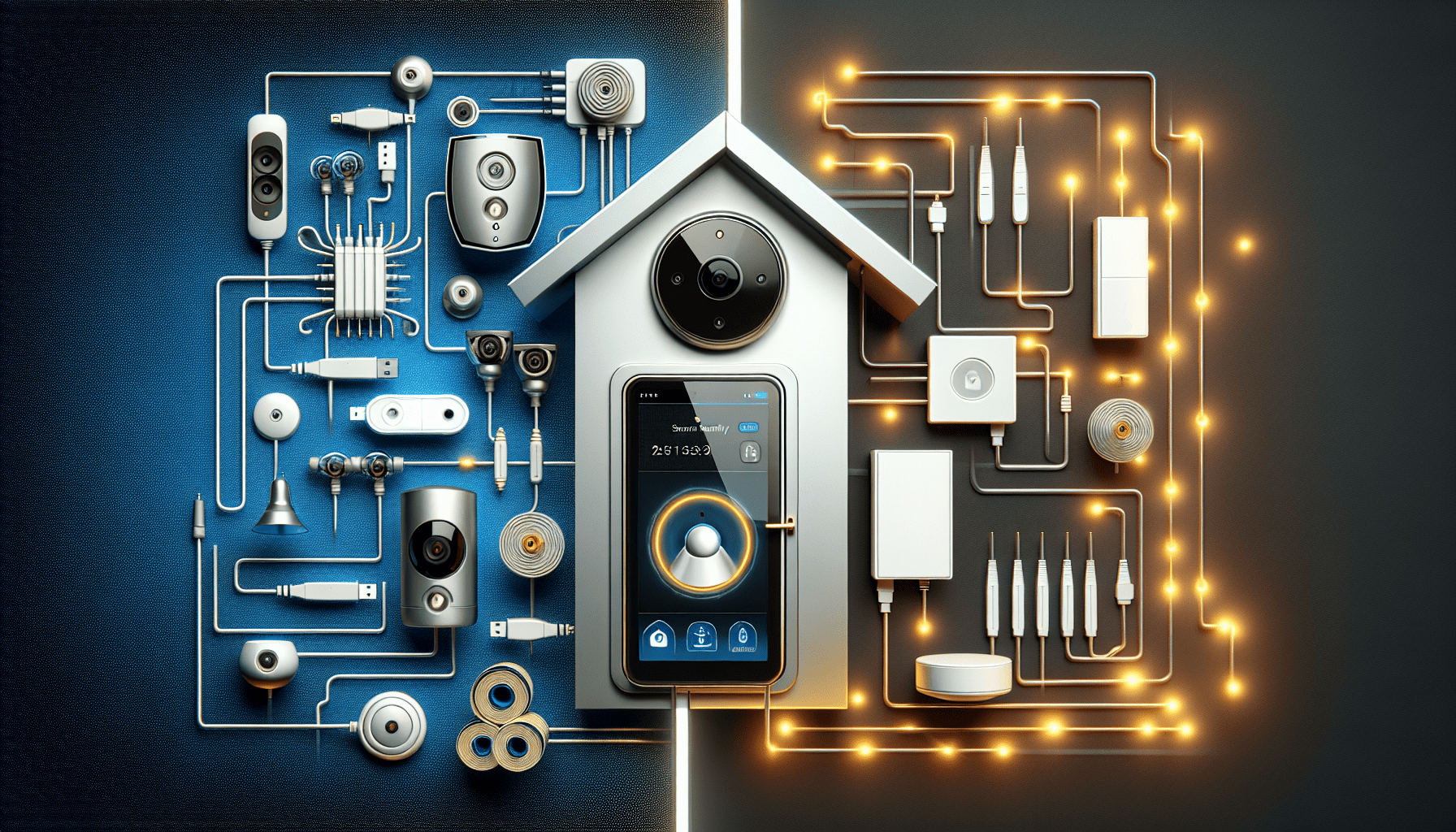Choosing between wired and wireless smart home security systems can seem like a daunting decision, but with a little guidance, you’ll be able to select the best option for your home. Wired systems offer reliability and stability, while wireless systems provide flexibility and easy installation. Consider factors such as your budget, home layout, and security needs to determine which type of system is the right fit for you. Ultimately, the choice between wired and wireless smart home security systems depends on your personal preferences and priorities. How Do I Choose Between Wired And Wireless Smart Home Security Systems?
How do you choose between wired and wireless smart home security systems? It’s a common question many homeowners ask when considering adding a security system to their home. Both wired and wireless options have their pros and cons, so it’s important to understand the differences between the two before making a decision. In this article, we’ll break down the key factors you should consider when choosing between wired and wireless smart home security systems.
Cost
When it comes to choosing between wired and wireless smart home security systems, the cost is often a deciding factor for many homeowners. Wireless systems are typically more affordable upfront because they require less equipment and installation time. On the other hand, wired systems tend to be more expensive due to the cost of the wired components and professional installation.
Consider Your Budget
Before making a decision, consider your budget and how much you’re willing to spend on a smart home security system. Determine if the additional cost of a wired system is worth the investment for your home’s security needs.
Installation
The installation process for wired and wireless smart home security systems can vary significantly. Wireless systems are generally easier to install since they don’t require drilling holes or running wires throughout your home. They can be set up by the homeowner without the need for professional help. Wired systems, on the other hand, typically require professional installation due to the complexity of wiring and setup.
DIY vs. Professional Installation
If you’re handy and comfortable working with technology, you may opt for a wireless system that you can install yourself. However, if you prefer a seamless and professional installation process, a wired system may be the better option for you.
Reliability
The reliability of your home security system is crucial when it comes to protecting your property and loved ones. Wired systems are known for their reliability since they are not subject to interference from other wireless devices or signal disruptions. Wireless systems, while convenient, can be prone to signal interference and connectivity issues.
Signal Strength and Interference
Consider the layout of your home and the potential for signal interference when deciding between wired and wireless smart home security systems. If you live in an area with a lot of wireless devices or a large home, a wired system may offer more reliable coverage.
Expandability
As technology continues to evolve, the ability to expand your smart home security system is essential. Wireless systems are known for their scalability, allowing you to easily add additional devices and sensors as needed. Wired systems, while reliable, can be more challenging to expand due to the physical limitations of the wiring.
Future-Proofing Your System
Think about your long-term needs and how you may want to expand your smart home security system in the future. Consider the flexibility and expandability of wireless systems when making your decision.
Maintenance
Maintaining your smart home security system is essential for ensuring its effectiveness and longevity. Wireless systems require minimal maintenance since they do not have wires that can wear out or become damaged over time. Wired systems may require routine maintenance to ensure all components are functioning correctly.
Routine Inspections and Upkeep
Factor in the maintenance requirements when choosing between wired and wireless smart home security systems. Consider whether you have the time and resources to perform routine inspections and upkeep on a wired system, or if you prefer a more hands-off approach with a wireless system.
Security and Vulnerability
One of the top considerations when choosing a smart home security system is the level of security it offers and any potential vulnerabilities. Wired systems are generally more secure since they are not susceptible to hacking or signal jamming. Wireless systems, while secure when properly encrypted, may be vulnerable to cyber threats if not adequately protected.
Encryption and Data Protection
Make sure to research the encryption protocols and data protection measures of the smart home security systems you’re considering. Look for systems with robust security features to minimize the risk of cyber threats and unauthorized access.
User-Friendliness
The ease of use and accessibility of your smart home security system can significantly impact your overall experience and peace of mind. Wireless systems are known for their user-friendly interfaces and mobile app integration, making it easy to monitor and control your system remotely. Wired systems may have more complex interfaces and lack modern conveniences like mobile app support.
Remote Access and Control
Consider how important remote access and control are to you when choosing between wired and wireless smart home security systems. If you value the ability to monitor your system from anywhere, a wireless system with mobile app support may be the best choice for you.
Power Source
The power source for your smart home security system is another essential factor to consider when deciding between wired and wireless options. Wired systems typically rely on a consistent power supply to function, while wireless systems may have battery-powered components that require regular replacement.
Battery Life and Backup Power
Evaluate the battery life and backup power options for wireless smart home security systems. Consider how often you’ll need to replace batteries and whether backup power sources are available in case of an outage.
Integration with Other Smart Home Devices
If you have other smart home devices or systems in your home, you’ll want to choose a smart home security system that can seamlessly integrate with them. Many wireless systems offer compatibility with popular smart home platforms and devices, allowing you to create a comprehensive home automation ecosystem. Wired systems may have limited integration capabilities depending on their technology and protocols.
Compatibility and Interoperability
Check the compatibility and interoperability of smart home security systems with other devices and platforms you have in your home. Make sure the system you choose can communicate effectively with your existing smart home ecosystem for a seamless user experience.
Conclusion
Choosing between wired and wireless smart home security systems can be a challenging decision, but by considering factors like cost, installation, reliability, expandability, maintenance, security, user-friendliness, power source, and integration with other smart home devices, you can make an informed choice that meets your security needs. Take the time to research and compare different options before making your decision to ensure you select the best system for your home. Remember, the most important aspect is choosing a system that provides you with peace of mind and security for you and your loved ones.






